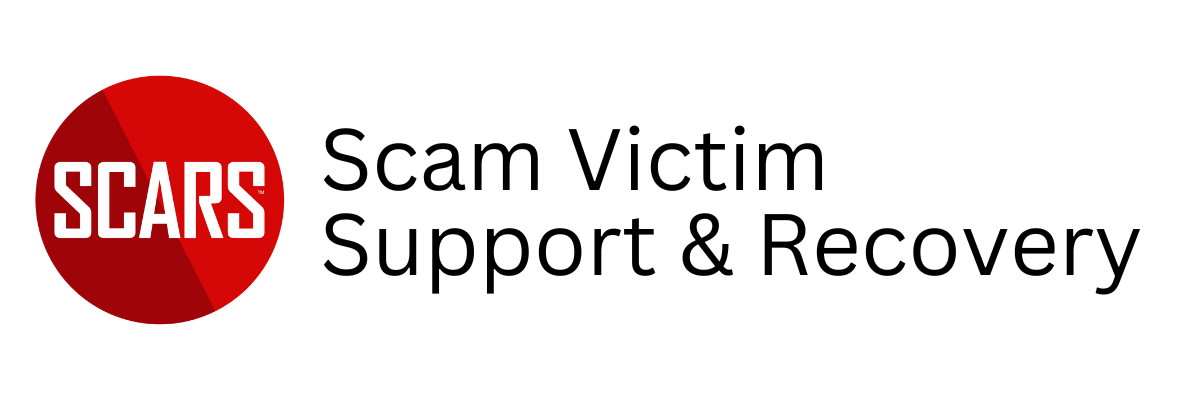Talk Therapy For Scam Victims – An Introduction
An Introduction to Talk Therapy for Scam Victims
Primary Category: Recovery Psychology
Author:
• Vianey Gonzalez B.Sc(Psych) – Licensed Psychologist, Specialty in Crime Victim Trauma Therapy, Neuropsychologist, Certified Deception Professional, Psychology Advisory Panel & Director of the Society of Citizens Against Relationship Scams Inc.
About This Article
Talk Therapy or Trauma Therapy is critical for scam victims due to the profound emotional and psychological distress these experiences can cause. Scams often result in significant emotional trauma, including feelings of betrayal, shame, guilt, anxiety, depression, and even post-traumatic stress disorder (PTSD).
Therapy specifically addresses these deep-seated issues by providing a structured and safe environment for victims to process their experiences and begin healing. Techniques such as Eye Movement Desensitization and Reprocessing (EMDR) and Trauma-Focused Cognitive Behavioral Therapy (TF-CBT) are particularly effective in helping victims manage their distress, rebuild self-esteem, and develop coping strategies. By focusing on the specific impacts of trauma, these therapies equip victims with the necessary tools to overcome the lasting effects of their ordeal, ultimately restoring their mental health and well-being.
Note: This article is intended for informational purposes and does not replace professional medical advice. If you are experiencing distress, please consult a qualified mental health professional.

The Healing Power of Talk Therapy for Scam Victims Experiencing Trauma
Understanding the Impact of Scams on Mental Health
Scams are not merely financial inconveniences; they are deeply traumatic experiences that can leave victims with significant emotional and psychological scars. The betrayal, loss of trust, and financial devastation often lead to feelings of shame, guilt, anxiety, depression, and even post-traumatic stress disorder (PTSD). For many victims, the psychological aftermath can be more challenging to overcome than the financial loss itself. This is where talk therapy plays a crucial role in helping victims navigate their recovery journey.
The Role of Talk Therapy in Recovery
Talk therapy, also known as psychotherapy, involves discussing one’s thoughts, feelings, and experiences with a trained therapist. This therapeutic process can be incredibly beneficial for scam victims as it provides a safe and supportive environment to explore and understand their emotions. Through talk therapy, victims can work through the trauma, rebuild their self-esteem, and develop coping strategies to deal with the aftermath of the scam.
Key Benefits of Talk Therapy for Scam Victims
Validation of Feelings: Most scam victims experience a profound sense of shame and self-blame. Talk therapy helps validate their feelings and assures them that their reactions are normal. Understanding that their emotional response is a common reaction to trauma can be the first step toward healing.
Rebuilding Trust: One of the most damaging effects of being scammed is the erosion of trust. Victims struggle to trust others, including themselves. Through therapeutic relationships, victims can gradually rebuild their ability to trust others, which is essential for their overall mental health and future interactions.
Developing Coping Strategies: Therapists can help victims develop practical coping strategies to manage anxiety, depression, and PTSD symptoms while avoiding negative (maladaptive) coping mechanisms. This might include mindfulness techniques, cognitive-behavioral strategies to reframe negative thoughts, and stress management practices.
Restoring Self-Esteem: Scams tend to shatter a person’s self-esteem, leaving them feeling foolish, stupid, gullible, or naive. Therapy focuses on rebuilding self-esteem by helping victims understand that the scam was not their fault and that they were targeted by sophisticated criminals.
Processing Trauma: Talk therapy provides a structured environment to process the trauma associated with being scammed. This can involve discussing the event in detail, exploring the impact on the victim’s life, and working through the emotions associated with the experience.
Types of Talk Therapy Beneficial for Scam Victims
Cognitive Behavioral Therapy (CBT): CBT is effective in addressing the negative thought patterns that often accompany trauma. It helps victims reframe their thoughts and develop healthier, more constructive ways of thinking.
Trauma-Focused Therapy: This type of therapy specifically addresses the impact of trauma on the victim’s life. It helps individuals process the traumatic event and integrate it into their life narrative in a way that reduces its ongoing impact.
Support Groups: Group therapy can also be beneficial as it allows victims to connect with others who have had similar experiences. Sharing stories and coping strategies can provide mutual support and reduce feelings of isolation. Note that group therapy is conducted by mental health professionals, whereas a support group can be provided by a victims’ assistance provider. Also, note that not all scam victims are ready for support groups until they have had a course of therapy. It is best to get the approval of your therapist before engaging in a scam victim support process.
Mindfulness-Based Therapy: Techniques such as mindfulness meditation can help victims stay grounded in the present moment, reducing the impact of anxiety and depression. Victims can engage in outside mindfulness training in addition to therapy. However, mindfulness practices, such as Yoga, etc. are not a replacement for therapy.
Talk Therapy vs. Trauma Therapy
Talk therapy and trauma therapy are both forms of psychotherapy, but they have different focuses and methodologies tailored to the needs of the patient.
Talk Therapy
Definition and Scope:
Talk Therapy: Also known as psychotherapy, is a broad category that includes various types of therapy where the primary mode of treatment involves talking through issues with a therapist. It encompasses a wide range of therapeutic techniques and is used to address a broad spectrum of mental health issues such as depression, anxiety, relationship problems, and general stress.
Goals and Techniques:
General Focus: The primary goal is to help individuals understand and manage their emotions, thoughts, and behaviors by discussing them with a therapist. This type of therapy can be both short-term or long-term and may address specific issues or provide ongoing support.
Techniques Used: Includes Cognitive Behavioral Therapy (CBT), Dialectical Behavior Therapy (DBT), psychodynamic therapy, and humanistic therapy. Techniques often involve identifying negative thought patterns, improving emotional regulation, and developing coping strategies.
Application:
Broad Use: Suitable for a wide range of issues, from everyday stress and minor life adjustments to chronic psychological disorders. It helps in improving overall mental well-being and quality of life.
Trauma Therapy
Definition and Scope:
Trauma Therapy: A specialized form of psychotherapy focused specifically on helping individuals recover from traumatic experiences. Trauma therapy addresses the psychological and physiological impacts of trauma, aiming to process and integrate traumatic memories to reduce their negative effects.
Goals and Techniques:
Trauma-Specific Focus: The main goal is to help individuals process and heal from traumatic experiences, reducing symptoms of trauma such as PTSD, anxiety, and depression. It involves creating a safe environment for the patient to explore and process trauma.
Techniques Used: Includes Eye Movement Desensitization and Reprocessing (EMDR), Trauma-Focused Cognitive Behavioral Therapy (TF-CBT), somatic experiencing, and exposure therapy. These techniques are designed to help patients process trauma memories, reduce distress, and develop healthier responses to trauma triggers.
Application:
Targeted Use: Specifically designed for individuals who have experienced significant trauma, such as abuse, violence, accidents, or disasters. It helps in alleviating trauma-related symptoms and improving overall functioning.
Key Differences
Focus and Specialization:
Talk therapy addresses a broad range of psychological issues and is not necessarily focused on trauma.
Trauma therapy specifically targets trauma-related symptoms and recovery from traumatic events.
Techniques and Approaches:
Talk therapy utilizes general psychotherapeutic techniques suitable for a variety of mental health concerns.
Trauma therapy employs specialized techniques designed to process and heal from trauma.
Goals:
The goal of talk therapy is general mental health improvement and coping strategies.
The goal of trauma therapy is to address and heal the specific impacts of trauma on an individual’s life.
By understanding these differences, individual scam victims can seek the appropriate type of therapy based on their specific needs, ensuring they receive the most effective support for their mental health concerns. However, when in doubt or if the opportunity is available choose a trauma therapist.
Trauma Therapy Preferred
SCARS recommends trauma therapy for all victims of scams, recognizing the profound psychological injury these experiences cause. SCARS emphasizes that scam victims often suffer from significant emotional and psychological trauma, akin to the aftermath of other severe life events. Trauma therapy is designed to specifically address these deep-seated issues because trauma is more than strictly mental, it is a whole-body experience, and this is essential in helping victims process their experiences, manage their distress, and reclaim their lives.
By focusing on techniques tailored to healing from trauma, such as EMDR and Trauma-Focused Cognitive Behavioral Therapy, SCARS advocates for a comprehensive approach to recovery, ensuring that victims receive the support and tools necessary to overcome the lasting effects of their ordeal. This recommendation underscores the importance of specialized care in restoring the mental health and well-being of scam victims.
Encouraging Victims to Seek Help
It is necessary for all scam victims to see a professional psychologist, regardless of the therapy type, because professional therapeutic support provides a structured and evidence-based approach to healing. Most therapy styles, including cognitive-behavioral therapy (CBT), talk therapy, and trauma-focused therapy, share common goals of helping individuals process their experiences, develop coping mechanisms, and rebuild their sense of self and trust.
A psychologist can tailor these therapies to address the unique needs of scam victims, who often suffer from a range of emotional and psychological issues such as anxiety, depression, PTSD, and a profound sense of betrayal. By working with a professional, victims can receive personalized treatment plans that address their specific symptoms and situations, ensuring more effective and comprehensive healing. Additionally, therapists can offer a safe and confidential environment where victims feel supported and understood, which is essential for recovery and resilience.
Professional therapy helps in breaking the cycle of trauma by empowering victims with tools to manage their emotions, reduce stress, and improve their overall mental health. This professional guidance not only aids in immediate recovery but also equips victims with long-term strategies to prevent future psychological distress, promoting enduring mental well-being.
Summary
The trauma inflicted by scams goes far beyond financial loss, leaving victims grappling with severe emotional and psychological distress.
Talk therapy offers a pathway to healing, providing victims with the tools and support they need to process their experiences, rebuild their lives, and regain their peace of mind. By understanding the profound benefits of therapy, scam victims can take the first step towards overcoming their trauma and emerging stronger from their ordeal.
It is very important to encourage scam victims to seek help and to normalize the need for therapy. Friends, family members, and even financial institutions can play a role in guiding victims toward professional help. Acknowledging the trauma and taking proactive steps to address it through therapy can significantly enhance the recovery process and help victims reclaim their lives.
Please Rate This Article
Please Leave Us Your Comment
Also, tell us of any topics we might have missed.
Thank you for your comment. You may receive an email to follow up. We never share your data with marketers.
-/ 30 /-
What do you think about this?
Please share your thoughts in a comment above!
More Therapy Related Information:
- EMDR Therapy For Scam Victims’ Trauma – A Part Of The Recovery Process For Many – 2024 (scamsnow.com)
- CPT – Cognitive Processing Therapy For Scam Victims’ Trauma – 2024 (scamsnow.com)
- Scam Victims Guide To Do-It-Yourself Exposure Therapy – 2024 (scamsnow.com)
- Scam Victims Guide To Do-It-Yourself EFT Tapping – 2024 (scamsnow.com)
- Self-Help Written Exposure Therapy (WET) For Scam Victim Recovery – 2024 (scampsychology.org)
- Labyrinth Walking and Spiral Walking Meditation for Scam Victims – 2024 (scamsnow.com)
- Scam Victim Journaling And Recovery (romancescamsnow.com)
- Psychological Triggers/Emotional Triggers – What They Are And How They Work – 2023/2024 (scamsnow.com)
- PTSD And Complex PTSD – The Difference Between Them – 2023 (scamsnow.com)
- Counseling And Your Native Language (scamsnow.com)
- Scam Victims Suppressing Trauma Or Avoiding Recovery And Healing 2024 (scamsnow.com)
-/ 30 /-
What do you think about this?
Please share your thoughts in a comment above!
SCARS LINKS: AgainstScams.org RomanceScamsNOW.com ContraEstafas.org ScammerPhotos.com Anyscam.com ScamsNOW.com
reporting.AgainstScams.org support.AgainstScams.org membership.AgainstScams.org donate.AgainstScams.org shop.AgainstScams.org
youtube.AgainstScams.org linkedin.AgainstScams.org facebook.AgainstScams.org
ARTICLE RATING
TABLE OF CONTENTS
CATEGORIES
MOST POPULAR COMMENTED ARTICLES
POPULAR ARTICLES
U.S. & Canada Suicide Lifeline 988
![NavyLogo@4x-81[1]](https://scamsnow.com/wp-content/uploads/2025/04/NavyLogo@4x-811.png)
ARTICLE META
WHAT PEOPLE ARE TALKING ABOUT LATEST SITE COMMENTS
See Comments for this Article at the Bottom of the Page
on Arts and Crafts Can Significantly Aid in Recovery for Scam Victims – 2025: “I did not realize that things I like doing very much—knitting or sudoku—were so helpful in my recovery process. The…” Jul 14, 11:28
on Projection And Scam Victims: “The moment I realized I had a financial loss due to a scam I realized that I felt shame, guilt,…” Jul 13, 19:12
on Japanese Legend of Tears – When There Are No Words – 2025: “After discovering the fraud, the pain was enormous. I shed oceans of tears, but I always tried to do it…” Jul 13, 10:50
on The SCARS Institute Scam Victim Recovery Timeline – 2025: “Wow. I umm experienced some of the later curves. I have been bouncing back and forth between asking myself why…” Jul 11, 00:01
on Transference And Emotional Danger After The Scam – 2024: “Thank you for the kind but firm reminder that the person in the stolen profile photo has their own life.…” Jul 9, 01:26
on ‘Mental Defeat’ – The Unique Condition Of Giving Up – 2024: “Thank you for another great article. I can see from this article that mental defeat would be debilitating to a…” Jul 9, 00:49
on Trust: Romance Scams Betrayal And Scam Victims – 2024: “This provided valuable insight that I can identify with” Jul 8, 16:44
on A Scam Victim in Extreme Distress – Stopping the Pain – 2024: “Your trust issues are very understandable. We are very sorry this happened to you. We suggest that you contact an…” Jul 8, 14:42
on A Scam Victim in Extreme Distress – Stopping the Pain – 2024: “My online counselors advised me to check myself in. I went to the hospital because I was suicidal. After I…” Jul 8, 13:44
on Scam Victim Catastrophizing Making Recovery Difficult 2024: “Excellent article on catastrophizing. I can understand how this could take a person down a rabbit warren of never ending…” Jul 8, 12:12
on The Self-Pity Trap & How To Overcome It – 2023 – [UPDATED 2025]: “I am not in the habit of feeling sorry for myself. After the deception, although it was not easy at…” Jul 8, 11:49
on Pride – A Dual Edged Sword For Scam Victims – 2023 [UPDATD 2024]: “Looking back over my life I have seen how pride has impacted me both positively and negatively. However the negative…” Jul 8, 09:08
on The Self-Pity Trap & How To Overcome It – 2023 – [UPDATED 2025]: “I felt self-pity while the enormity of my financial loss washed over me like a tsunami. The self-pity lasted only…” Jul 7, 18:55
on The Uniqueness Of Scam Victims Or Fraud Victims – 2024: “unfortunately all true. It is highly stressful dealing with the aftermath. I am being sued for the money I borrowed…” Jul 6, 12:50
on Scam Victims & Mental Health Blaming – 2023 [UPDATED 2025]: “For most of my life words have defeated me, made me feel insignificant, unwanted, unneeded. For this reason it is…” Jul 5, 13:36
on Substance Abuse Susceptibility And Scam Victims – 2024: “It is understandable how some would feel that alcohol or substance abuse would be helpful in handling their feelings after…” Jul 1, 20:36
on Scam Victims Use Work To Avoid Healing: “The last 6 years have been the most difficult of my life. The pandemic, having both parents in the hospital…” Jun 29, 18:38
on Entitlement Mentality And How Scam Victims Often Lose Their Path To Recovery – 2024: “Thank you for this discussion of entitlement. I can see from the descriptions listed that I have not felt entitlement.…” Jun 29, 18:22
on Samurai Wisdom and Rituals for Clearing the Mind After Scam Trauma – 2025 – [VIDEOS]: “A great guide on how to move forward in our recovery process with a calm mind, cleansed on an ongoing…” Jun 28, 07:34
Important Information for New Scam Victims
Please visit www.ScamVictimsSupport.org – a SCARS Website for New Scam Victims & Sextortion Victims
SCARS Institute now offers a free recovery program at www.SCARSeducation.org
Please visit www.ScamPsychology.org – to more fully understand the psychological concepts involved in scams and scam victim recovery
If you are looking for local trauma counselors, please visit counseling.AgainstScams.org
If you need to speak with someone now, you can dial 988 or find phone numbers for crisis hotlines all around the world here: www.opencounseling.com/suicide-hotlines
Statement About Victim Blaming
Some of our articles discuss various aspects of victims. This is both about better understanding victims (the science of victimology) and their behaviors and psychology. This helps us to educate victims/survivors about why these crimes happened and not to blame themselves, better develop recovery programs, and help victims avoid scams in the future. At times, this may sound like blaming the victim, but it does not blame scam victims; we are simply explaining the hows and whys of the experience victims have.
These articles, about the Psychology of Scams or Victim Psychology – meaning that all humans have psychological or cognitive characteristics in common that can either be exploited or work against us – help us all to understand the unique challenges victims face before, during, and after scams, fraud, or cybercrimes. These sometimes talk about some of the vulnerabilities the scammers exploit. Victims rarely have control of them or are even aware of them, until something like a scam happens, and then they can learn how their mind works and how to overcome these mechanisms.
Articles like these help victims and others understand these processes and how to help prevent them from being exploited again or to help them recover more easily by understanding their post-scam behaviors. Learn more about the Psychology of Scams at www.ScamPsychology.org
SCARS INSTITUTE RESOURCES:
If You Have Been Victimized By A Scam Or Cybercrime
♦ If you are a victim of scams, go to www.ScamVictimsSupport.org for real knowledge and help
♦ Enroll in SCARS Scam Survivor’s School now at www.SCARSeducation.org
♦ To report criminals, visit https://reporting.AgainstScams.org – we will NEVER give your data to money recovery companies like some do!
♦ Follow us and find our podcasts, webinars, and helpful videos on YouTube: https://www.youtube.com/@RomancescamsNowcom
♦ Learn about the Psychology of Scams at www.ScamPsychology.org
♦ Dig deeper into the reality of scams, fraud, and cybercrime at www.ScamsNOW.com and www.RomanceScamsNOW.com
♦ Scam Survivor’s Stories: www.ScamSurvivorStories.org
♦ For Scam Victim Advocates visit www.ScamVictimsAdvocates.org
♦ See more scammer photos on www.ScammerPhotos.com
You can also find the SCARS Institute on Facebook, Instagram, X, LinkedIn, and TruthSocial
Psychology Disclaimer:
All articles about psychology and the human brain on this website are for information & education only
The information provided in this and other SCARS articles are intended for educational and self-help purposes only and should not be construed as a substitute for professional therapy or counseling.
Note about Mindfulness: Mindfulness practices have the potential to create psychological distress for some individuals. Please consult a mental health professional or experienced meditation instructor for guidance should you encounter difficulties.
While any self-help techniques outlined herein may be beneficial for scam victims seeking to recover from their experience and move towards recovery, it is important to consult with a qualified mental health professional before initiating any course of action. Each individual’s experience and needs are unique, and what works for one person may not be suitable for another.
Additionally, any approach may not be appropriate for individuals with certain pre-existing mental health conditions or trauma histories. It is advisable to seek guidance from a licensed therapist or counselor who can provide personalized support, guidance, and treatment tailored to your specific needs.
If you are experiencing significant distress or emotional difficulties related to a scam or other traumatic event, please consult your doctor or mental health provider for appropriate care and support.
Also read our SCARS Institute Statement about Professional Care for Scam Victims – click here
If you are in crisis, feeling desperate, or in despair, please call 988 or your local crisis hotline.
More ScamsNOW.com Articles
A Question of Trust
At the SCARS Institute, we invite you to do your own research on the topics we speak about and publish. Our team investigates the subject being discussed, especially when it comes to understanding the scam victims-survivors’ experience. You can do Google searches, but in many cases, you will have to wade through scientific papers and studies. However, remember that biases and perspectives matter and influence the outcome. Regardless, we encourage you to explore these topics as thoroughly as you can for your own awareness.















![scars-institute[1]](https://scamsnow.com/wp-content/uploads/2025/04/scars-institute1.png)
![niprc1.png1_-150×1501-1[1]](https://scamsnow.com/wp-content/uploads/2025/04/niprc1.png1_-150x1501-11.webp)

Leave a Reply